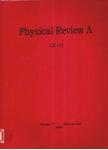版权所有:内蒙古大学图书馆 技术提供:维普资讯• 智图
内蒙古自治区呼和浩特市赛罕区大学西街235号 邮编: 010021

作者机构:NTT Basic Research Laboratories NTT Corporation 3-1 Morinosato Wakamiya Atsugi-Shi Kanagawa 243-0198 Japan National Institute of Information and Communications Technology 4-2-1 Nukui-Kita Koganei Tokyo 184-8795 Japan Center for Quantum Information and Quantum Control Department of Electrical & Computer Engineering and Department of Physics University of Toronto Toronto Ontario M5S 3G4 Canada Department of Physics and Center of Computational and Theoretical Physics University of Hong Kong Pokfulam Road Hong Kong
出 版 物:《Physical Review A》 (物理学评论A辑:原子、分子和光学物理学)
年 卷 期:2012年第85卷第4期
页 面:042307-042307页
核心收录:
学科分类:070207[理学-光学] 07[理学] 08[工学] 0803[工学-光学工程] 0702[理学-物理学]
基 金:National Institute of Information and Communications Technology (NICT) of Japan Japan Society for the Promotion of Science (JSPS) RGC of the HKSAR Government [700709P] Natural Sciences and Engineering Research Council Canada Research Chair program Canadian Institute for Advanced Research (CIFAR) QuantumWorks
主 题:Quantum cryptography
摘 要:In this paper, we study the unconditional security of the so-called measurement-device-independent quantum key distribution (MDIQKD) with the basis-dependent flaw in the context of phase encoding schemes. We propose two schemes for the phase encoding: The first one employs a phase locking technique with the use of non-phase-randomized coherent pulses, and the second one uses conversion of standard Bennett-Brassard 1984 (BB84) phase encoding pulses into polarization modes. We prove the unconditional security of these schemes and we also simulate the key generation rate based on simple device models that accommodate imperfections. Our simulation results show the feasibility of these schemes with current technologies and highlight the importance of the state preparation with good fidelity between the density matrices in the two bases. Since the basis-dependent flaw is a problem not only for MDIQKD but also for standard quantum key distribution (QKD), our work highlights the importance of an accurate signal source in practical QKD systems.